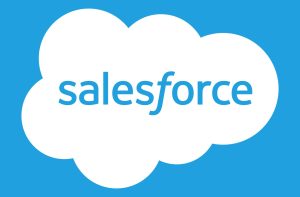Best Practices for Data and Document Storage in Salesforce
Salesforce, the premier customer relationship management (CRM) platform, equips businesses with robust data and document storage solutions. Its structured approach to storage ensures that data is organized and accessible, enabling businesses to leverage their information effectively. As AvSight is seamlessly integrated with Salesforce, it unlocks the platform’s vast potential, allowing users to maximize their operational efficiency and data management capabilities. This article explores essential strategies and considerations for harnessing Salesforce’s storage capabilities to their fullest extent. By focusing on optimizing how data is stored and managed, businesses can thrive within Salesforce’s innovative environment, ensuring they make the most of every opportunity to streamline operations and enhance data utilization without ever worrying about constraints.
Understanding Salesforce Data and File Limits

Salesforce’s specific storage limits encourage strategic data management, guiding companies to efficiently handle their storage. By adopting a proactive data storage policy, organizations can optimize costs and maintain organized data, avoiding the need for costly additional storage. This approach ensures effective management of both current and archived files within Salesforce’s framework.
Best Practices for Data Management
To manage data within Salesforce’s limitations, consider these best practices:
Company Information Management: Regularly monitor your Salesforce environment to understand your data storage metrics. Knowing where you stand in terms of storage usage is the first step in avoiding potential issues.
Developing a Data Archive Strategy: Crafting a data archive strategy is essential. It helps in identifying which data is active and which is obsolete, thus reducing storage requirements over time.
Capacity Planning to Avoid Storage Outages: Effective capacity planning can prevent the dreaded “out of storage” error. Anticipate future storage needs based on current data trends to mitigate risks of operational interruptions.
Archive Considerations
There are tools specifically designed for Salesforce to assist with data archiving:
Data Loader: Useful for backing up data and attachments.
XFilesPro: Offers solutions for archiving file storage.
OwnBackup: Ideal for archiving both data and file storage comprehensively.
Its important to note that many AvSight users have recommended these solutions, however they are not provided directy by AvSight or Salesforce and we cannot be responsible for their functionality.
Creating a Data Archive Strategy
Implementing a data archive strategy involves several steps and considerations:
Assess Storage Needs: Determine what storage you currently use and forecast future needs.
Identify Archivable Data: Not all data needs to be readily accessible. Identify data that can be archived without impacting daily operations.
Choose the Right Tools: Utilize Salesforce-approved tools that align with your archiving needs.
Salesforce Support Resources: Salesforce’s knowledge base is rich with articles and blogs that can guide you through the process of archiving data. These resources are invaluable for understanding best practices and methodologies.
Complexities in Data Archiving
When archiving data, it’s important to navigate through several complexities:
Data Constraints: Some data cannot be deleted or moved off-platform without specific handling.
Order of Operations: Understand the dependencies before deleting any data.
Validation Rules: Many objects in Salesforce have validation rules that need to be considered during the archiving process.
Permissions and Page Layouts
Managing permissions is crucial when archiving data. Only certain user profiles may have the authority to delete or archive data. Additionally, archiving may necessitate changes in page layouts to accommodate the archived data.
Adopting best practices for data and document storage in Salesforce is not just a recommendation, it’s a necessity for maintaining an efficient and effective CRM environment. By understanding storage limitations, planning capacity, and utilizing the right tools, organizations can ensure their Salesforce platform remains robust and scalable. Take a look at our Self-guided demo or schedule a live demo to find out why AvSight is the ideal technology partner for you.
Experience AvSight for Yourself
Request a demo to see how our next generation aviation platform can give your company a competitive edge.
Request A Demo

